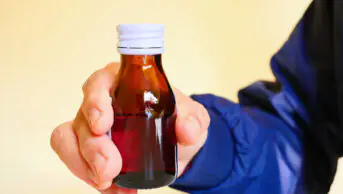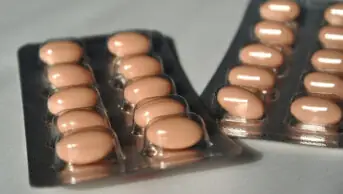
Johner Images / Alamy Stock Photo
The government has announced an “emergency ban” on prescriptions of puberty-suppressing hormones written by UK private prescribers, as well as prescribers registered in the European Economic Area (EEA) or Switzerland, for patients aged under 18 years in England, Wales and Scotland “to address risks to patient safety”.
In a statement, published on 29 May 2024, the Department of Health and Social Care (DHSC) said the new arrangements apply to gonadotropin-releasing hormone analogues, which are medicines that consist of, or contain, buserelin, gonadorelin, goserelin, leuprorelin acetate, nafarelin or triptorelin.
The statement said that patients already established on these medicines by a UK prescriber for the purpose of suppressing puberty can continue to access them, adding that “they will also remain available for patients receiving the drugs for other uses, from a UK-registered prescriber”.
The DHSC said the ban will last from 3 June 2024 to 3 September 2024, and means that “no new patients [aged] under 18 [years] will be prescribed these medicines for the purposes of puberty suppression in those experiencing gender dysphoria or incongruence under the care of these prescribers”.
The statement advised that “patients seeking more information should speak to their clinician”.
Following the publication of the Cass Review into gender identity services in April 2024, the NHS stopped the routine prescription of puberty blocker treatments to patients aged under 18 years and introduced indefinite restrictions to the prescribing of these medicines within NHS primary care in England.
The Cass Review also recommended the government work with the General Pharmaceutical Council (GPhC) to consider statutory solutions to prevent inappropriate overseas prescribing of hormone supplies.
The review included feedback from focus groups that showed that some respondents had sought “private provision while on the waiting list for GIDS [gender identity development services]”, with “families trying to balance the risks of obtaining unregulated and potentially dangerous hormone supplies over the internet with the ongoing trauma of prolonged waits for assessment”.
The review said this was seen as “a forced choice (because the NHS provision is not accessible in a timely way) rather than a preference”, owing in part to the ongoing cost of treatment and the subsequent monitoring being “prohibitive for some”.
The Cass Review also said that “any clinician who ascertains that a young person is being given drugs from an unregulated source should make the young person and their family aware of the risks of such treatment”.
Following the publication of the review, the GPhC published a resource to support pharmacists and pharmacy technicians who are providing pharmacy services to children and young people relating to gender incongruence.
This resource sets out questions that pharmacy professionals should ask themselves when making decisions about the supply of medicines in this context and apply to the provision of services in person or online.
The GPhC website says: “The new resource emphasises that pharmacy teams providing pharmacy services to children and young people with gender incongruence or dysphoria need to adhere to the standard process of clinical assessment and care provision they have been trained to take as healthcare professionals.”
“The resource also emphasises that the starting point is that pharmacy professionals must provide compassionate, inclusive and person-centred care, within the current relevant legal and regulatory context,” it adds.
On 30 May 2024, the GPhC emailed pharmacists, pharmacy technicians and pharmacy owners in England, Scotland and Wales to make them aware of the new emergency legislation.


